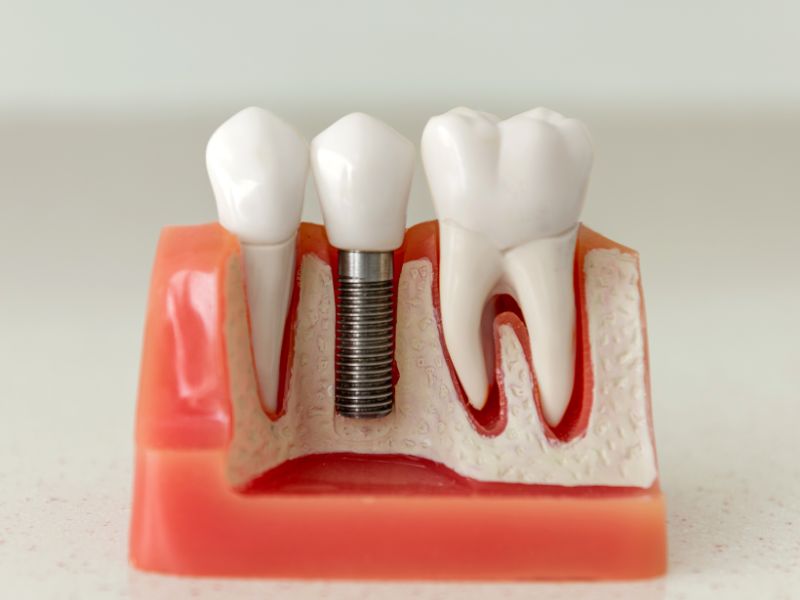Many people, especially the elderly, need to resort to one or more dental implant treatments. With this treatment, having lost a dental piece, what is achieved is to recover both the functionality of the mouth and the aesthetics of the smile.
However, although it is not a common occurrence, there can be rejections in dental implants, and it is on this issue that we are going to discuss today throughout this article.
But first you have to know exactly what a dental implant is.
What is a dental implant?
You probably know what a dental implant is, but for those who don’t know it yet. A dental implant corresponds to a solution to replace missing teeth or, what is the same, edentulism.
It consists of replacing a seriously damaged or lost dental piece with a spare one that simulates being a natural tooth. Said replacement has to function as a root, for this reason, a titanium screw is used, since it is a very easy material to integrate into the body and is often very resistant, although for those people who are allergic to metal it is usually used to ceramic materials such as zirconium.
What are dental implant rejections?
Returning to the subject at hand, the rejection of dental implants, it is interesting to know what they are for better understanding.
Rejections of dental implants are phenomena that occur when the healing process is not optimal, that is, when it is not possible to integrate the replacement properly. These complications arise from the functionality of the implant and are annoying for the patient, so it will have to be replaced.
Symptoms of dental implant rejections
As we have mentioned at the beginning of the text, having dental implant rejections is a very rare event. However, if you have or are going to receive this treatment, it is important to be aware of the possible symptoms that may alert you to a possible rejection.
The main signs are the ones shown below:
- That the dental prosthesis has mobility.
- Noticeable pain or discomfort when touching the implant. After the intervention it is normal to feel discomfort, but if these do not subside it is necessary to go to the specialist as soon as possible.
- That the area where the implant has been placed suffers notable inflammation. Possibly it is because the prosthesis has been made.
- If you see a white tissue between the bone and the implant.
Causes of dental implant rejections
Finally, we must not forget that there are a number of causes that lead to rejection of dental implants, among the most common we highlight the following:
- That low quality materials are used.
- That the intervention is carried out by a person without experience and qualification.
- That the treatment has not been adequately planned.
- Not having a good habit of oral hygiene, since it develops pathologies and favors the accumulation of bacteria.
- Smoking interferes negatively in the osseointegration process.
- Uncontrolled diseases such as diabetes.
We are specialists in implantology and other oral treatments
Now that you know all the most important details of dental implant rejections, it’s time to underline how essential it is to be treated by specialist implantologists. At our dental clinic in Malaga, Gross Dentistas, we offer you both the best team of dentists and the best materials on the market.
In addition to implants, we also carry out other oral treatments, such as orthodontics, periodontics, dental aesthetics, among other
If you would like more information on this matter, please contact us. We are delighted to serve you.
Ortodoncista especializada en el sistema de ortodoncia invisible, extensa trayectoria profesional y un gran número de pacientes satisfechos con los resultados obtenidos tras la finalización de su tratamiento.


